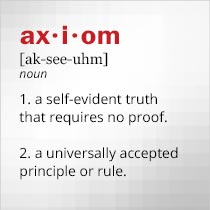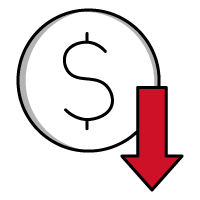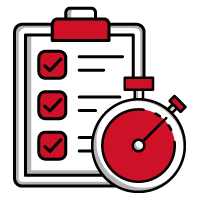Surveying EV and HEV Power Testing Solutions
November 07, 2023
.jpg) |
The numbers of electric vehicles (EVs) and hybrid electric vehicles (HEVs) on the world’s roads continue to grow, slowly replacing traditional vehicles running on gasoline and diesel fuels. Vehicles with engines based on electric power still take time to recharge when their batteries run low on power, but they do not contaminate the environment as do vehicles with engines running on gasoline or diesel fuels. As more drivers adopt EVs and HEVs, they wonder about maintenance costs and routines compared to traditional motor vehicles with internal-combustion engines. Those hoping to maintain this next generation of motor vehicles also wonder about the types of test equipment they will need.
EVs and HEVs rely on robust, high-voltage (HV) battery systems for all or part of their energy. The lithium-based batteries require regular charging for a reasonable driving range, even though they add a great deal of weight to a vehicle. HV battery systems in EVs and HEVs are among these vehicles’ most important components since the greatest driving ranges are reached at their fullest charge capacities. Unfortunately, as with most electronic components, they have limited lifetimes and over time, the batteries will lose charge capacity and their EVs and HEVs will lose range. They must be regularly tested to ascertain their status and capacities as part of a regular EV or HEV maintenance routine.
As important as these large battery systems are to an EV or HEV, many other electronic components contribute to the performance of these electric-powered vehicles. Battery systems can be evaluated through voltage and power measurements, but additional test procedures can be helpful in monitoring the performance levels of these many additional “supporting” electronic components in EVs and HEVs. For example, battery discharge measurements should be made on a regular basis to better understand the HV battery system’s energy storage characteristics and whether energy leakage is occurring at different points within an EV or HEV. By performing battery discharge measurements at different test locations, such as along the chassis, at the inverter, at the electric motor terminals, along the HV cables, and at the HV battery terminals, the electrical integrity of the system can be evaluated. Performing such measurements requires the optimum test gear, more than a digital multimeter (DMM), although such a handheld tester can provide a quick read of voltage and current at any time.
For characterizing an EV’s or HEV’s battery charge/discharge behavior and power support systems, few measurement systems provide the power and flexibility of the NH Research 9300-200 High-Voltage Battery Test System. The bidirectional source offers charging envelopes from 0 to 600 V at ±333 A or 0 to 1200 V at ±167 A and discharging envelopes of 30 to 600 V at ±333 A or 60 to 1200 V at ±167 A. It integrates extensive digital measurement capabilities and features an easy-to-use touchscreen display which shows results for voltage, current, and power. The battery test system can be quickly programmed to operate with an external personal computer (PC) and commercial test software as well as with NH Research’s Enerchron® test executive PC software. This is a highly efficient battery test system, capable of recovering most of the energy from discharge testing not as heat but as power that can be returned to a warehouse or manufacturing facility.
Additional EV and HEV battery testing can be performed by the Elektro-Automatik EA-BT 20010-600 Triple rack-mount battery tester. The three-channel unit provides voltage testing over ranges from 0 to 10 VDC to as wide as 0 to 920 VDC along with current range of ±600 A/channel and power range of ±6000 W/channel. Equipped with USB and Ethernet interfaces, the tester can operate in constant-voltage (CV), constant-current (CC), constant-resistance (CR), and constant-power (CP) modes to simulate different system conditions.
Gauging the Grid
As the numbers of EVs and HEVs on roadways increase, the need for charging stations will also grow, along with some means of testing electric-vehicle charging stations, such as the Chroma 61860 grid simulator. It is a programmable power source to ensure safe operation of electronic systems, such as EVs and HEVs, on the renewable energy power grid. It can simulate regenerative operation, in which excess power sent to a vehicle under test is recycled back to the power grid.
This four-quadrant power supply can emulate energy grid characteristics, including distorted voltage waveforms with variations in power-line frequency, voltage amplitude, and phase angle. It is capable of single-phase or three-phase outputs as high as 60 kVA at frequencies of DC or 30 to 100 Hz. Voltages can be set with 0.1-V resolution from 0 to 300 V for line-to-neutral (LN) voltages and 0 to 520 V for line-to-line (LL) voltages. It has a generous assortment of computer interfaces, including GPIB, RS-232, Ethernet, and USB, and provides an AC + DC feature for testing components requiring a DC offset bias.
Chroma also offers its model 63206A-150-600 DC electronic load for battery discharge testing and analyzing power sources to EVs and HEVs such as charging stations. It features a voltage range of 0 to 150 V and current range of 0 to 600 A, with power limit of 6 kW and maximum power consumption of 200 VA. It is a member of the company’s 63200 series of DC loads, detailed in that earlier blog, capable of operating in CC, CR, and CP modes for testing power sources.
When analyzing power from an EV, HEV, or charging station, few testers can match the accuracy and flexibility of the Yokogawa WT5000 modular power analyzer. The rack-mount mainframe provides seven module slots to allow a user to configure measurement capabilities as needed, for example with 5- and 30-A modules. Well suited for evaluating the power efficiency of an EV or HEV, including its battery charging and discharging capabilities, the power analyzer delivers AC and DC power measurement accuracy of ±0.03% or better. Depending upon test modules, the analyzer can measure voltage to 1000 V and current to 30 A. The mainframe has a 10.1-in. built-in touchscreen display and can hold as much as 32 GB of internal memory for storing test data and sophisticated measurement setups.
To aid in EV and HEV power testing, there is the Yokogawa DL850EV ScopeCorder portable data acquisition recorder, which can be outfit with as many as 17 input modules with flexible inputs for voltage and current measurements. It is effective for capturing extremely short-term electrical events and works with AC or DC supplies at sample rates to 100 MSamples/s. It shows results on a 10.4-in. LCD screen with 1024 × 768-pixel resolution.
This is a small sampling of the electrical power testers available for EV and HEV testing. For additional information on testing EVs and HEVs, please see the May 2018 blog, “Making Measurements That Keep EVs and HEVs on the Road,” available on the Axiom Test Equipment website at https://www.axiomtest.com/.
Back to BLOG








